Spot Correctors Can Unlock Even, Super-Youthful Skin—13 I've Vetted and Recommend

Shawna Hudson
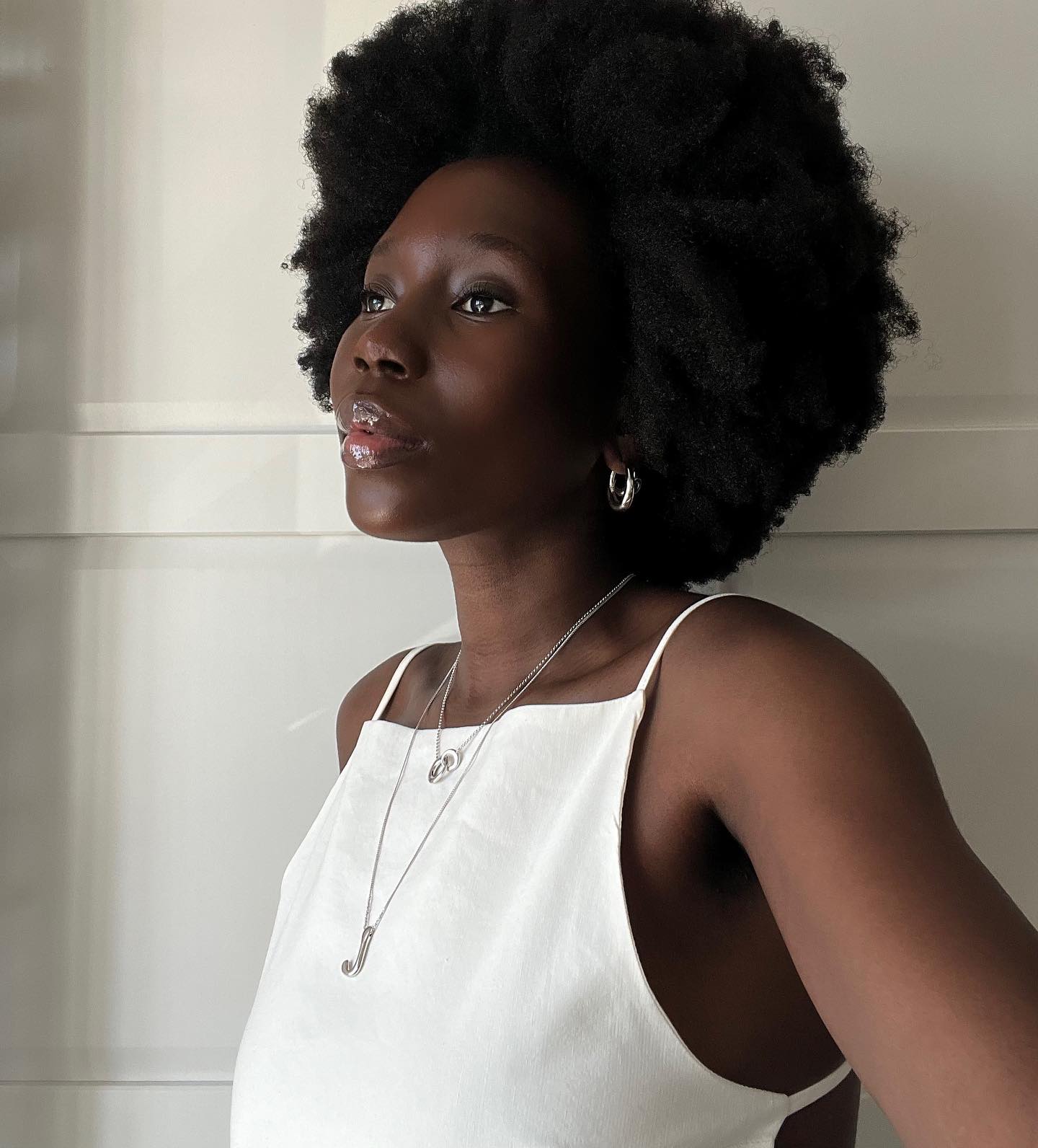
As a dark-skinned individual, I admit that hyperpigmentation has always been a mystery. While I was told what the uneven areas around my eyes, mouth, and nose were early on, I was never given a solution for it beyond being told to keep using the products that work for me. I went ahead with my skincare routines without reaping the benefits from products specifically designed to address these areas. I think most people of color and those with sensitive or acne-prone skin have had a similar experience (especially when it comes to stubborn post-inflammatory hyperpigmentation, sun spots, and age spots).
Now that I'm a 20-something beauty editor with a strong desire to learn more about what it takes to protect and care for my skin, I'm extremely lucky to have access to thousands of products, industry experts, and fellow beauty lovers to help me find solutions for my biggest skincare concerns. So if you have a similar hyperpigmentation tale and have yet to find a solution through using dark spot correctors, you've landed in the right place. Below, three dermatologists are giving their advice for finding the right products, how to treat dark spots quickly, and their top picks to get the job done for each skin type. You may even find a few of my personal favorites in the mix!
What Ingredients Should I Look For in a Spot Corrector?
With so much conflicting information and different products available at the touch of a button, it can be challenging to know which dark spot treatment deserves a permanent spot in your skincare routine. Luckily, dermatologists are here to help you make the best possible choice. If you're struggling with hyperpigmentation and other forms of discoloration, there are many high-performing ingredients to be on the lookout for. Marisa Garshick, MD, tells us the ones that make the biggest difference in promoting a smooth, even skin tone. "Key ingredients to look for in products for hyperpigmentation include antioxidants like vitamin C, hydroquinone, kojic acid, retinol, or other retinoids," she shares. "Niacinamide, exfoliating acids like glycolic acid, licorice root extract, tranexamic acid, azelaic acid, sunscreen, and more."
Because there are so many helpful ingredients to pick and choose from, you're bound to come across products that can help you with your skincare journey. Board-certified dermatologist Azadeh Shirazi, MD, offers additional effective ingredients that can help combat and prevent dark spots from making an appearance. "Look for products formulated with natural skin lighteners such as kojic acid, arbutin, emblica, vitamin C, and niacinamide," says Shirazi. "Clinical ingredients such as retinols, azelaic acid, hydroquinone, glycolic acid, and tranexamic acid are also very effective in reducing hyperpigmentation and lightening dark spots." Whether you decide to go with a serum or cream as your treatment, the secret to unlocking the potential of a dark spot corrector is to pay attention to your skin's needs and stay consistent with your use of the product.
How Should a Dark Spot Corrector Be Used?
So you have your dark spot corrector in your hand. Now what? There's no doubt that with the amount of conflicting information and products, it can be hard to determine if dark spot correctors belong in your skincare routine. Then comes the challenge of deciding where the product belongs in your lineup. Board-certified dermatologist Lauren Penzi, MD, provides an answer. "I recommend applying the dark spot corrector as the first step after cleansing," she says. "Apply a thin layer to the dark spot/area. Then you can apply your serums, moisturizer, and SPF (in that order)." At night, Penzi recommends following the same routine—cleansing followed by a dark spot corrector, retinol/retinoid (if you use one), and using a moisturizer as the grand finale.
The formulation of the dark spot corrector you choose and the way in which it's used should be dependent on skin type. If you have sensitive skin, proceed with caution when using spot correctors. "They are best applied to dry skin to reduce the risk of irritation. Be cautious of the number of products you are using with dark spot–correcting ingredients in order to avoid irritation, which in turn can lead to worsening hyperpigmentation. It's best to use one to two products designed to lighten dark spots that are comprehensive, meaning there are multiple ingredients in a single product to maximize benefits and reduce side effects," Penzi explains. For sensitive skin, she favors azelaic acid since it works well when layered with other ingredients and can help treat breakouts (one of the top reasons dark spots happen).

Which Products Are Best to Avoid When Using a Dark Spot Corrector?
Garshick also stresses that those with acne-prone or sensitive skin should be careful not to overdo it on the hyperpigmentation-targeting products since too many can lead to frequent breakouts. "Some ingredients like retinoids and exfoliating acids may be harsh or irritating on the skin, so when treating hyperpigmentation, it is often best to incorporate one new product at a time," she says. "Importantly, for those who may be susceptible to post-inflammatory hyperpigmentation, it is especially important to avoid irritating the skin when treating hyperpigmentation, as this can actually lead to more discoloration."
With that being said, a safe solution and an easy product to begin using for all skin types is noncomedogenic sunscreen. "Oftentimes, people focus on using products designed to lighten hyperpigmentation without protecting their skin from factors that play a major role in stimulating melanin—UV rays and visible light," Penzi explains.
Keep scrolling to see the dermatologist- and beauty editor–approved dark spot correctors that will make the biggest difference in encouraging an even skin tone.
The Best Dark Spot Correctors, Listed
- AziMD Skincare Azelaic 10 Serum
- Medik8 Oxy-R Peptides
- Vichy LiftActiv B3 Niacindamide Serum
- SkinCeuticals Discoloration Defense
- Dr. Idriss Major Fade Hyper Serum Dark Spot Treatment
- AziMD Skincare DermaBright Pads
- Melé Even Dark Spot Control Serum
- TruSkin Rejuvenating Longevity Serum
- Kiehl's Clearly Corrective Dark Spot Correcting Serum
- Eadem Milk Marvel Dark Spot Serum
- Topicals Faded Brightening & Clearing Serum
- SkinMedica Even & Correct Advanced Brightening Treatment
- Sisley-Paris Intensive Dark Spot Corrector
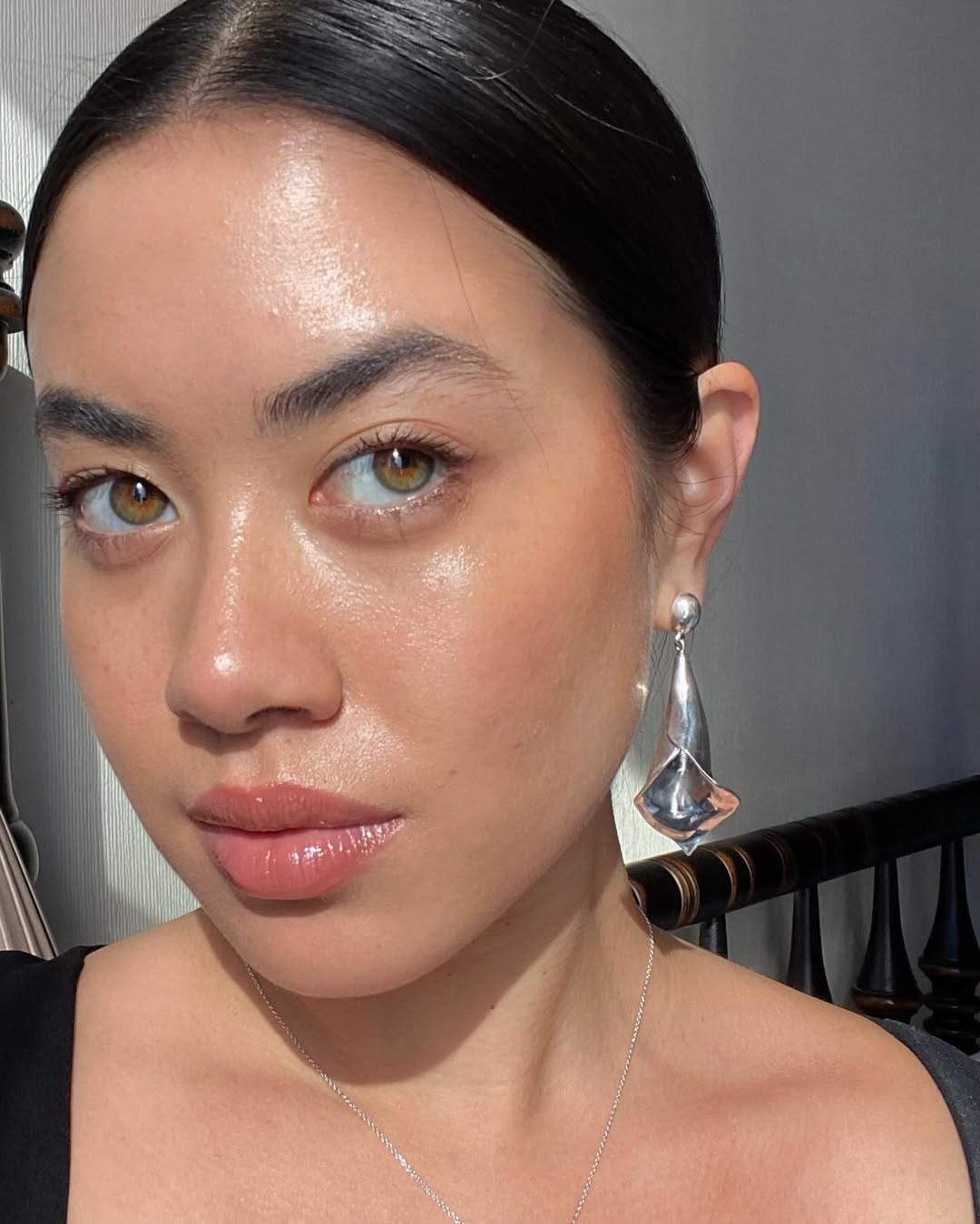
Expert-Recommended Dark Spot Correctors
1. AziMD Skincare Azelaic10 Serum
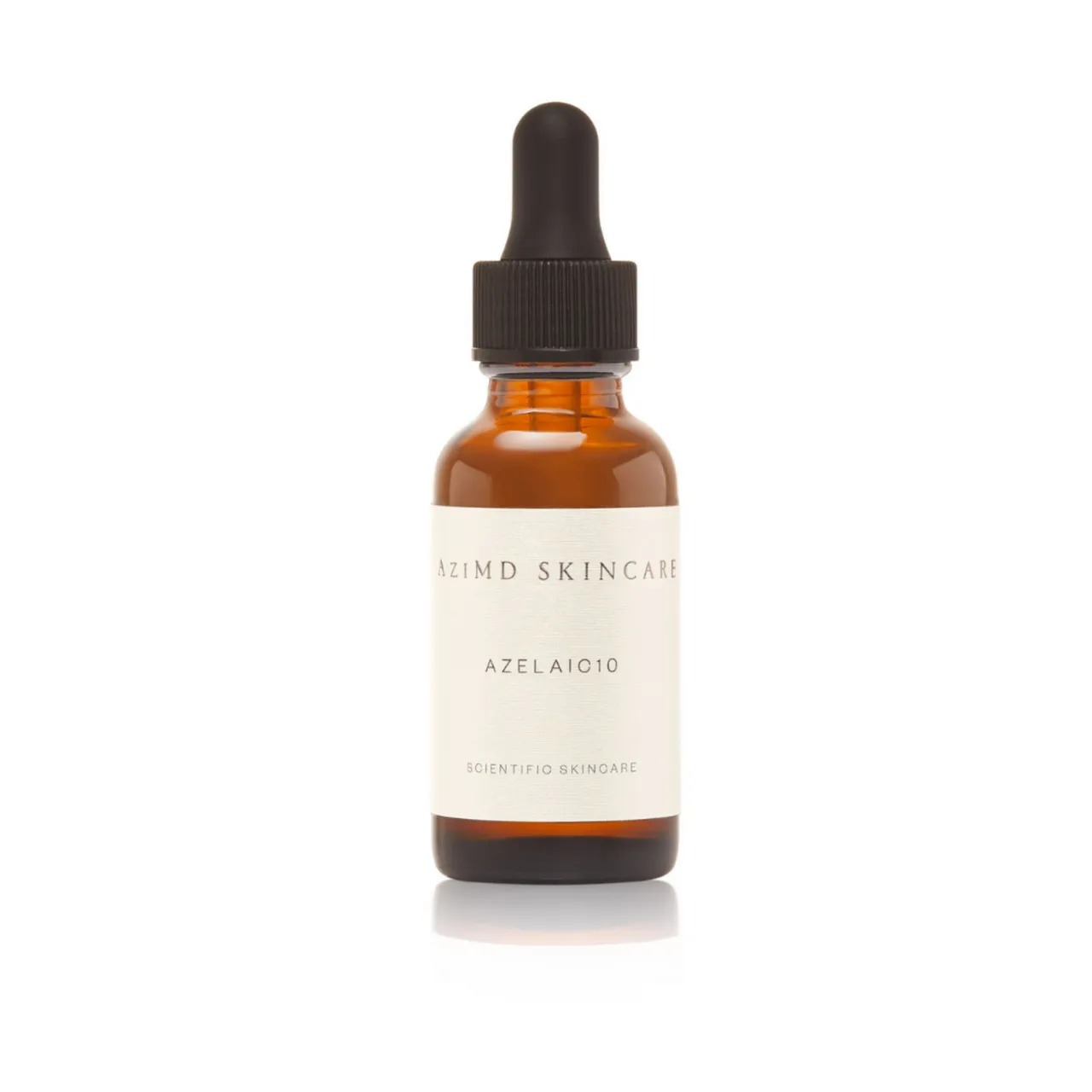
Shirazi swears by this serum because it's formulated with one of her favorite dark spot–fighting ingredients (azelaic acid) in combination with arbutin to promote an even skin tone, smooth texture, reduce breakouts, and calm redness. "Azelaic acid is a tyrosinase inhibitor that interferes with melanin production to prevent and treat hyperpigmentation, but it also clears pores of bacteria and organisms to fight against acne and rosacea, enhances cell turnover and gently exfoliates the skin, reduces inflammation and redness clinically shown to improve rosacea and acne," she says.
Pros: has a made-to-order, customizable formula using skin brightening ingredients
Cons: offered at a moderately high price point
Product Details: 1.0 ounce bottle with dropper
Customer Review: "I normally use the azelaic cream to protect breakouts and seeing this, I started using it and I love it. It brightens my skin and I love the feel. Leaves my skin hydrated with moisturizer and sunscreen of course on top. A must buy."
2. Medik8 Oxy-R Peptides
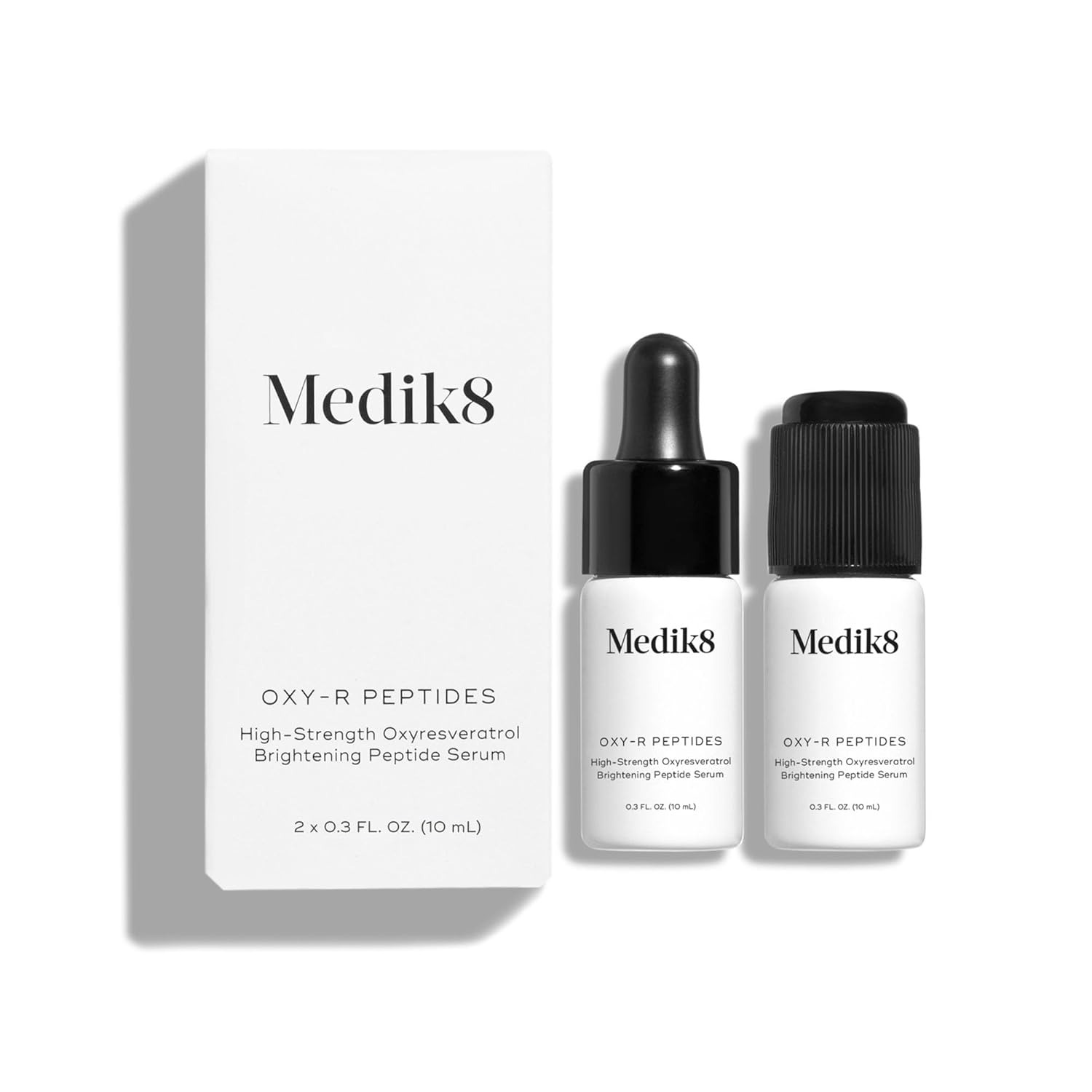
Medik8 Oxy-R Peptides is recommended by Garshick since it's designed to address dark spots and hyperpigmentation by using oxyresveratrol in a patented stabilization system (found to be more effective than kojic acid) and works by blocking the tyrosinase enzyme, which is a key enzyme in pigmentation. "It's also formulated with brightening peptides, tetrapeptide-3, and acetyl-glycyl beta alanine to brighten the skin and improve uneven skin tone," Garshick explains. In other words, it's great for a healthy-looking and -feeling complexion.
Pros: crafted with a 1% concentration of oxyresveratrol and skin-brightening peptides
Cons: product is quite limited, with only 0.3 ounces of serum being provided in the bottle
Product Specs: 0.3 ounce bottle with dropper
Customer Review: "I’ve been using this product for several weeks and I’ve noticed a difference in the pigmentation on my face has improved already! Would highly recommend this product, nice texture, absorbs well into the skin and doesn’t leave it greasy or sticky, and also doesn’t have a smell. My skin is also looking smoother and brighter."
3. Vichy LiftActiv B3 Niacindamide Serum
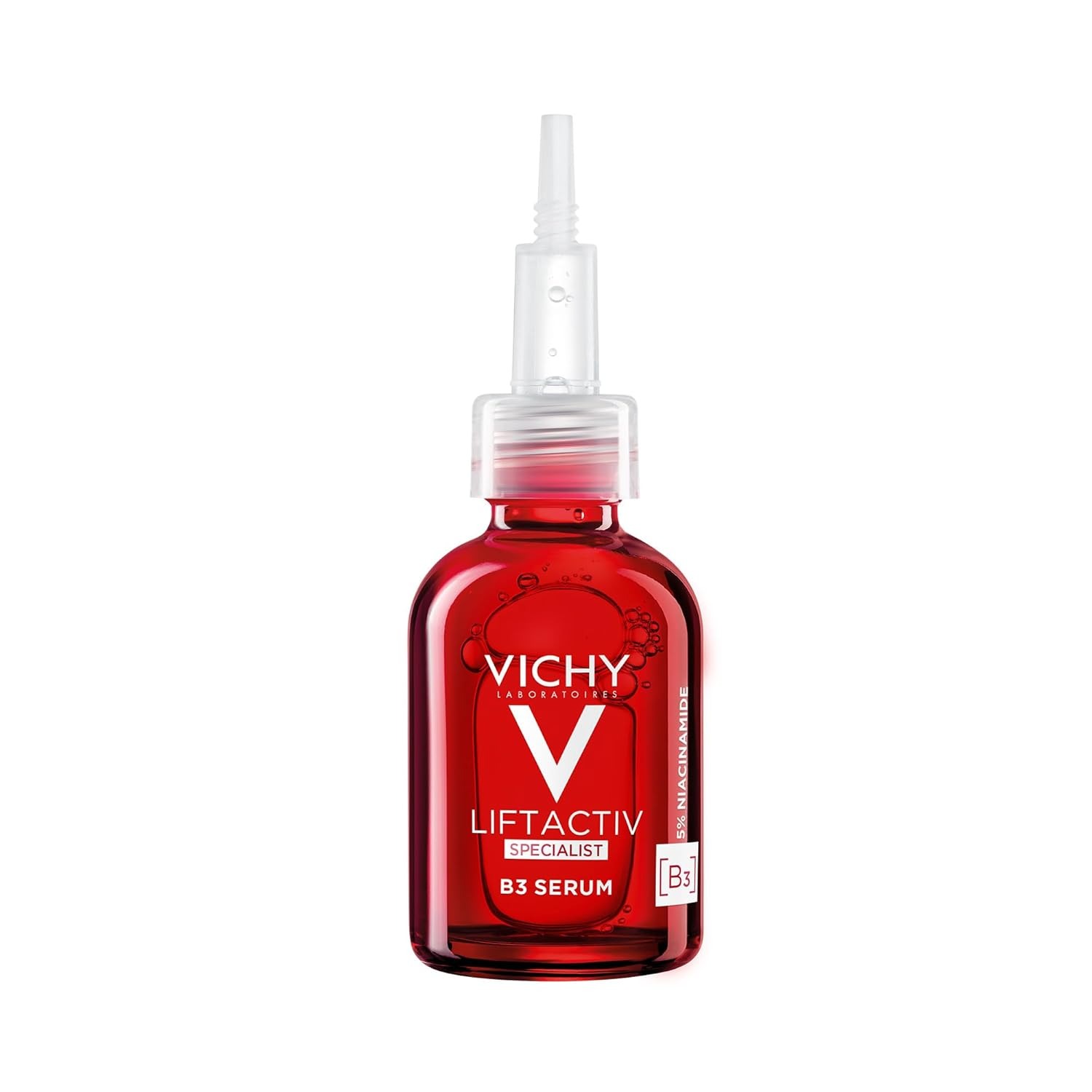
Garshick tells us, "A blend of key ingredients that help to brighten, this serum combines niacinamide, glycolic acid, and tranexamic acid to help visibly fade dark spots and even out the skin tone." Plus, it's fragrance-free, safe for use on all skin types, and addresses a number of skincare concerns.
Pros: has peptides that work to firm the skin and reduce the appearance of fine lines
Cons: does not work quickly; takes some time for users to see results
Product Details: 1.0 ounce bottle
Customer Review: "This product does what it says! [It] has very little-to-no scent. Smooth texture after applying and absorbs really fast. Fades darks spots and [is] very gentle on skin. This is my night time serum and I wake up with a hydrated, even-toned, and glowing face."
4. SkinCeuticals Discoloration Defense
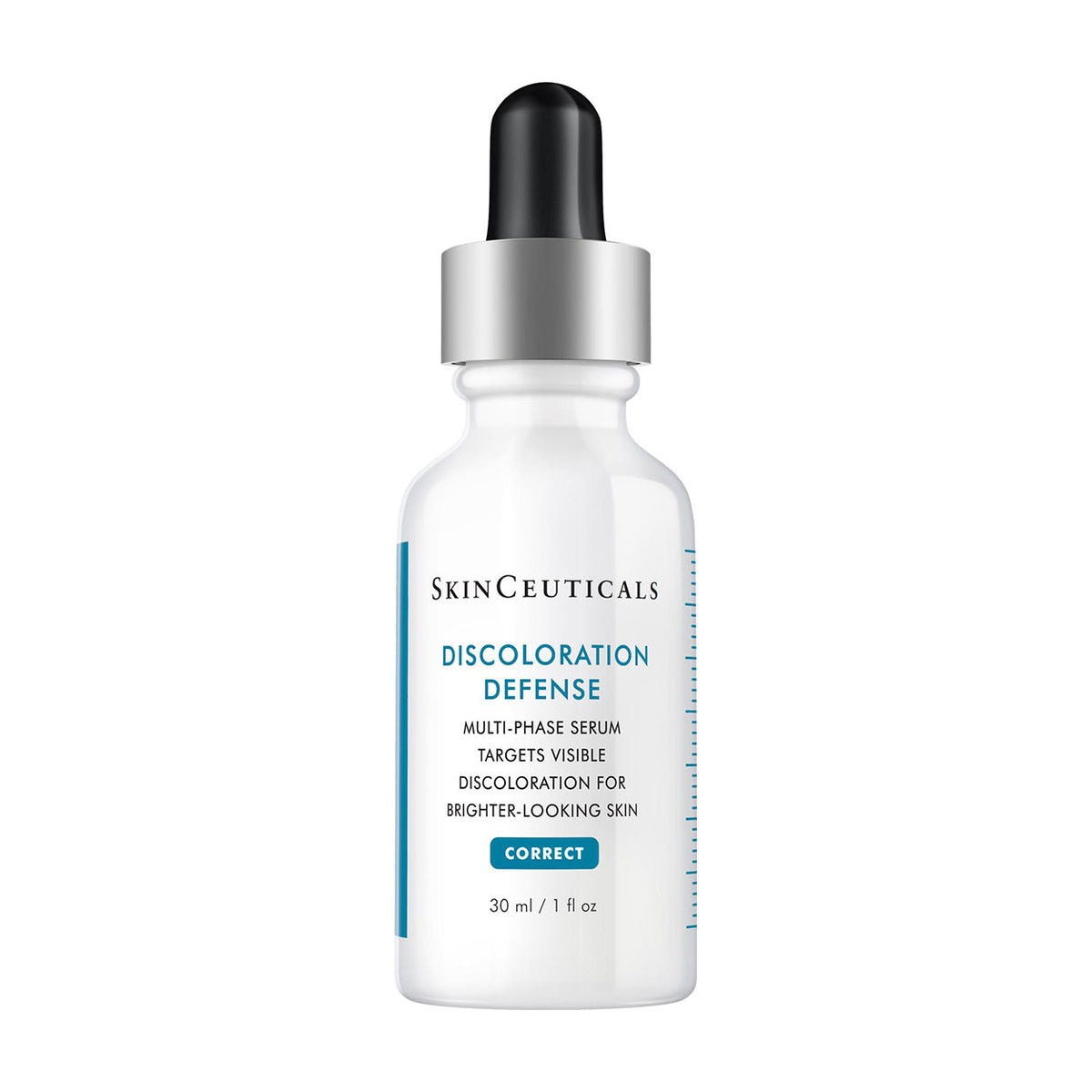
According to Garshick, this topical product by SkinCeuticals is formulated with tranexamic acid, an ingredient that, when studied in an oral ingestible form, has been found helpful for the treatment of melasma. She also identifies it as an ideal non-hydroquinone-based product to incorporate into a melasma skincare regimen.
Pros: brightens stubborn spots with a blend of tranexamic acid, kojic acid, and niacinamide
Cons: offered at a high price point
Product Details: 1.0 ounce bottle with dropper
Customer Review: "Noticed brighter and more even complexion after about three weeks of use. Continued improvement thereafter. Have been very consistent with twice daily usage. Layers well with other products."
5. Dr. Idriss Major Fade Hyper Serum Dark Spot Treatment
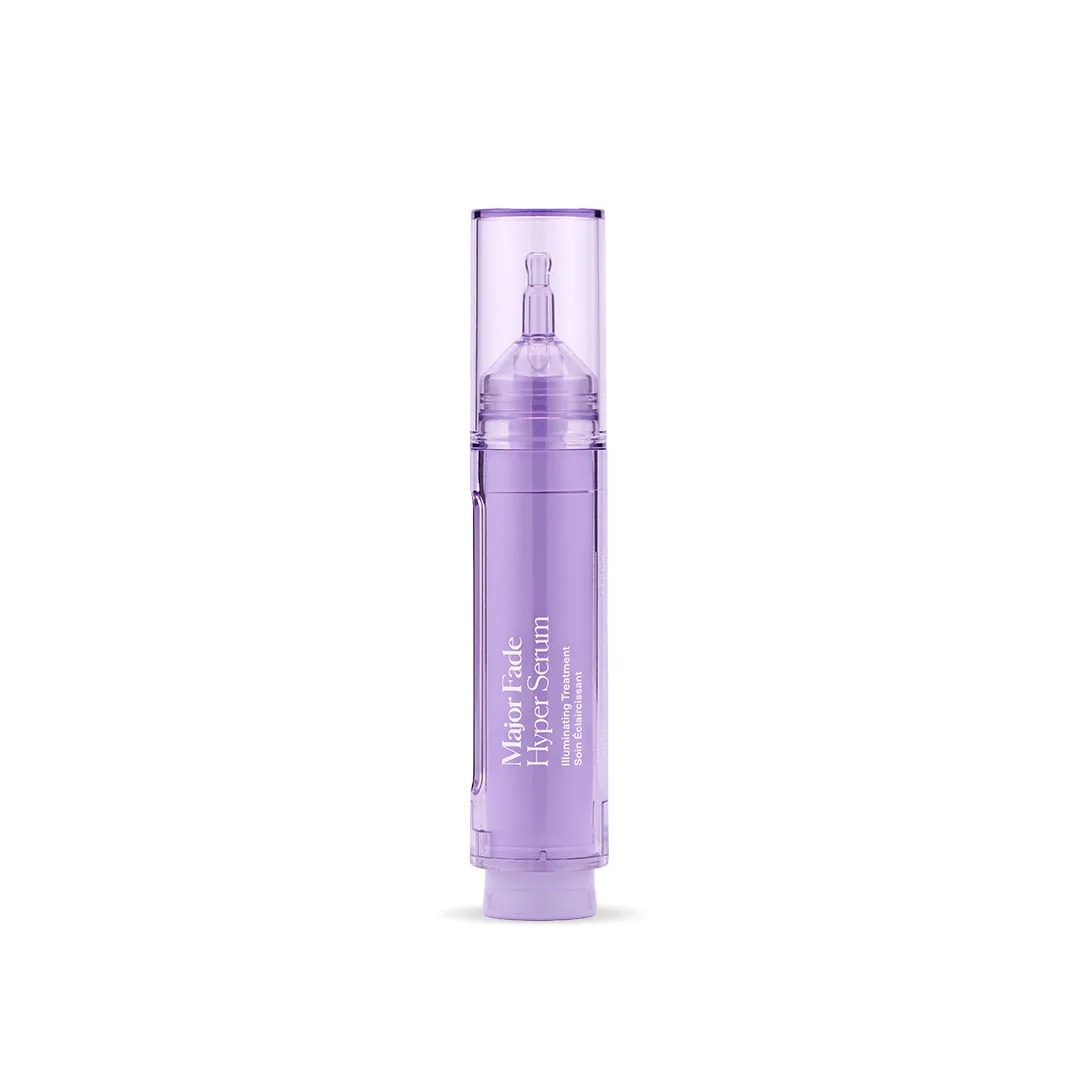
Another one of Penzi's top picks for kicking stubborn dark spots to the curb, the Dr. Idriss Major Fade Hyper Serum Dark Spot Treatment is clinically proven to reduce the appearance of dark spots and discoloration on the face over the course of a few days. "With kojic acid, niacinamide, alpha arbutin, diglucosyl gallic acid, and glycerin, this serum packs a punch for fading dark spots without irritating the skin," says Penzi.
Pros: helps quickly fade stubborn spots without causing any skin irritation
Cons: none
Product Details: 0.96 ounce syringe
Customer Review: "Love at first click! This serum is absolutely amazing. I saw great results from using it consistently over three months, especially in my sun spots. It also leaves the skins looking amazing!"
6. AziMD Skincare DermaBright Pads
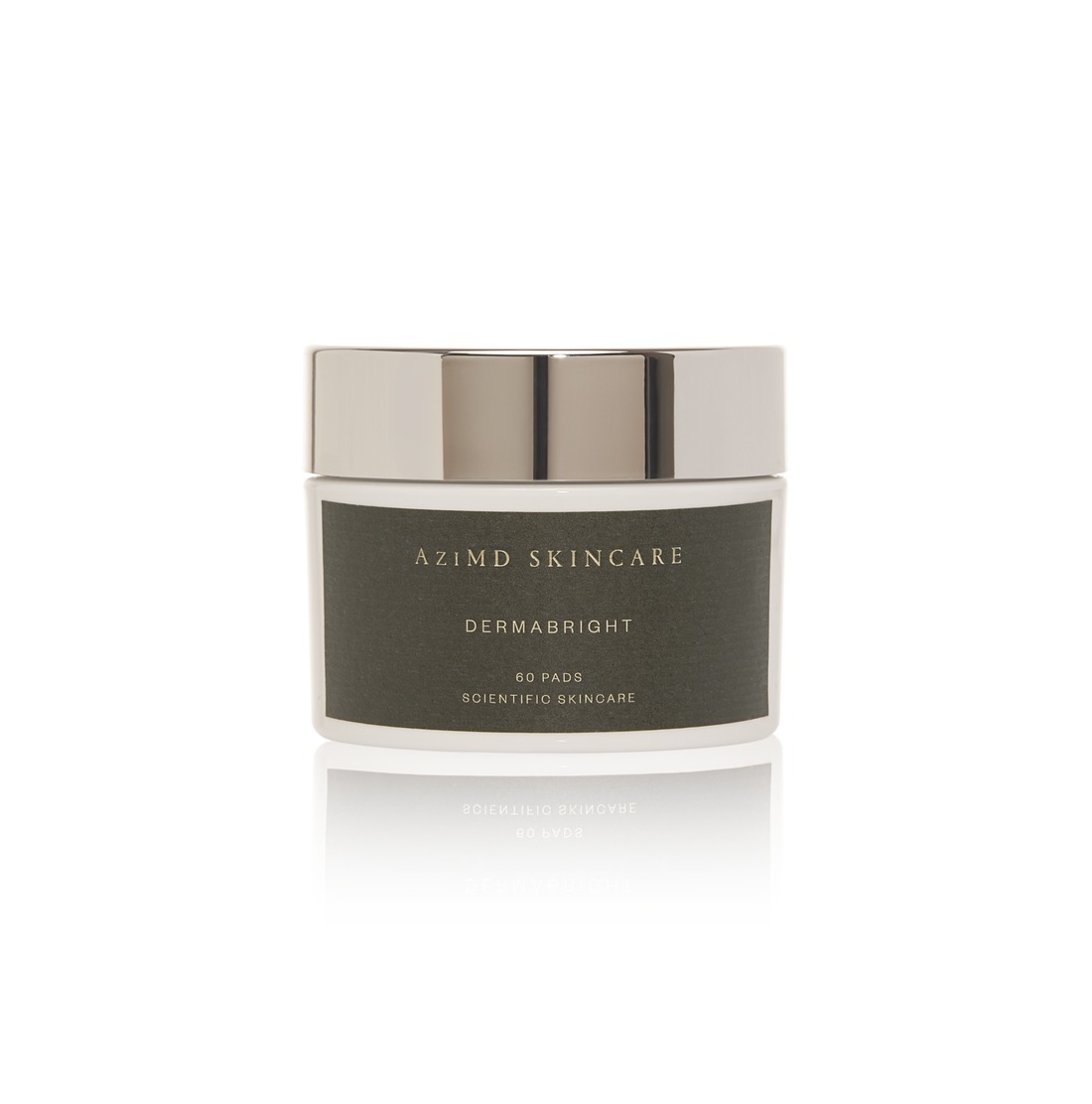
The AziMD Skincare DermaBright Pads works wonders for promoting an even and bright complexion. "What makes DermaBright Pads unique is its formulation using multiple natural skin brighteners and pigment lighteners such as kojic acid, arbutin, vitamin C, and emblica along with potent antioxidants like green tea polyphenols," says Shirazi. "They are gentle yet effective. My patients really notice a huge difference in the quality of their skin."
Pros: made to order to preserve freshness with a customizable formula
Cons: offered at a moderately high price point
Product Details: 5.0 ounce container with 60 pads
Customer Review: "I took a break from buying these as the price is not low, but honestly, my skin tone while using these is so improved. These pads drastically help reduce melasma, PIH, and any sun spots on the face. I use one at night before applying my retinol product."
7. Melé Even Dark Spot Control Serum
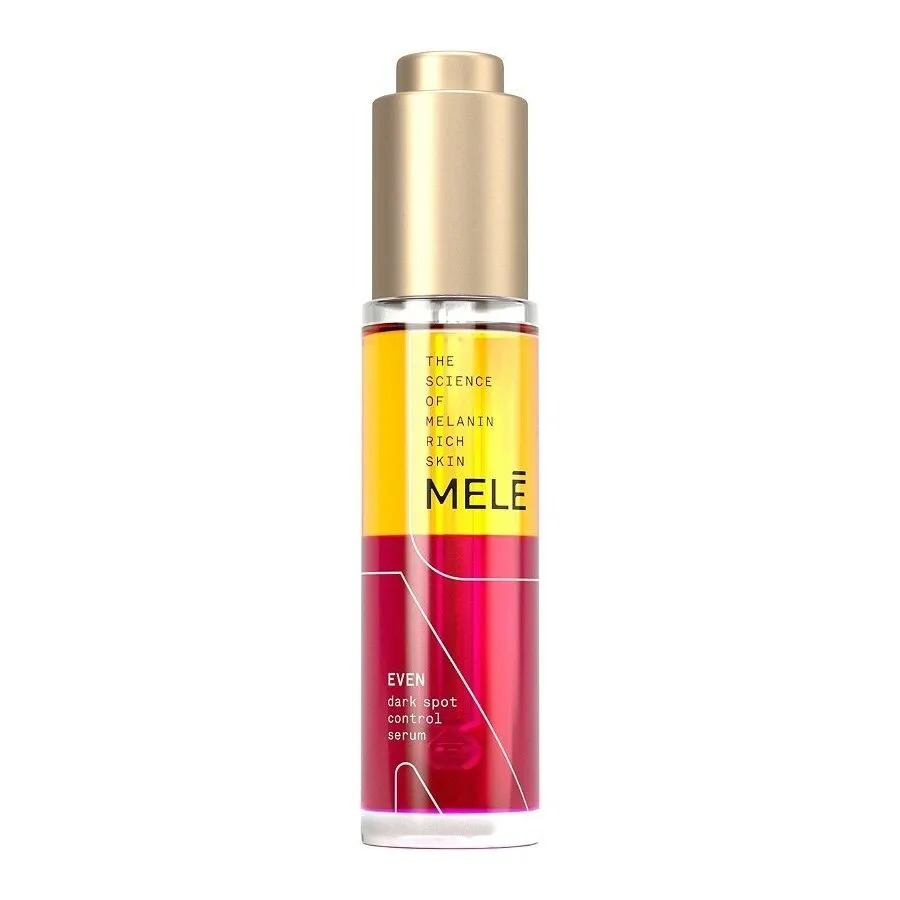
The Even Dark Spot Control Serum was designed to work specifically for melanin-rich skin like mine that's been affected by hyperpigmentation and dark spots. It also happens to be one of Garshick's favorites. "This serum includes a combination of niacinamide, vitamin E, pro-retinol, and hydroxyresorcinol and together helps to reduce the appearance of dark spots and discoloration. It can be used twice daily," she tells us.
Pros: features a triple active formula that targets and reduces the appearance of dark spots
Cons: does not provide fast results
Product Details: 1.0 ounce bottle
Customer Review: "I have very sensitive and dry skin. Since I started using this product my overall facial skin health has improved. It’s light yet it moisturizes my skin so well. Great for pre-make up and it blends in well with my other products (sunscreen, primer ect) great product!
8. TruSkin Rejuvenating Longevity Serum
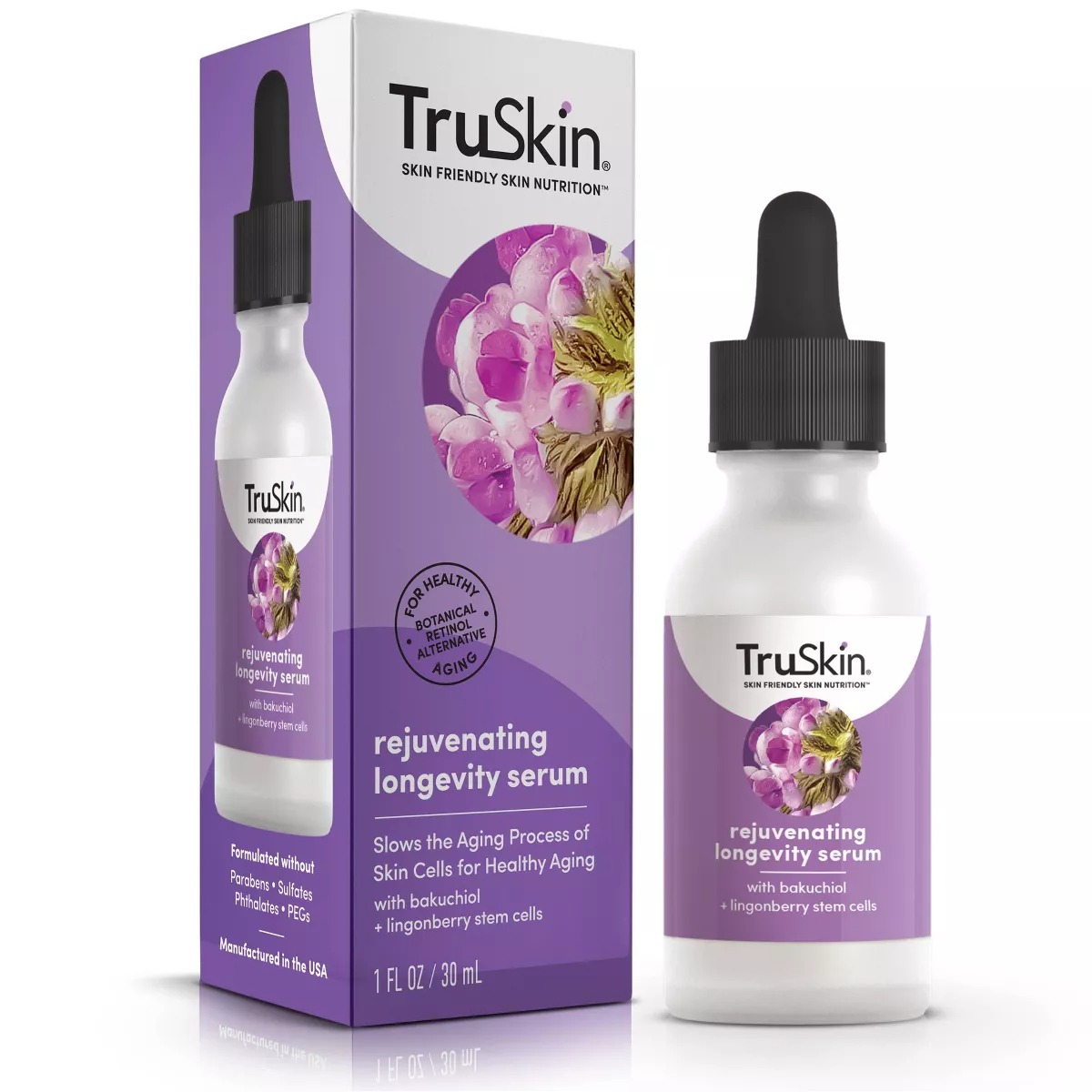
If you're looking for a hyperpigmentation-fighting serum that can help halt signs of aging in its tracks (or if you have sensitive skin), give this one a try. "It's a great option for someone who cannot tolerate a retinoid, this serum contains bakuchiol to help address fine lines, wrinkles, and hyperpigmentation without irritating the skin," Garshick explains. She also highlights the fact its formula contains lingonberry stem cells, which work to protect the skin from oxidative stress and blue light that can worsen hyperpigmentation.
Pros: ideal for with sensitive skin; addresses dark spots, fine lines, and wrinkles
Cons: none
Product Details: 1.0 ounce bottle with dropper
Customer Review: "I love this new product! It makes my face feel smooth and glowing. Also, I do sit in front of a screen all day for my job and [I] never considered the damage it might be doing to my skin. So I greatly appreciate having something a little extra to protect my face from the blue light. I use blue light glasses—why not serum and lotion as well?"
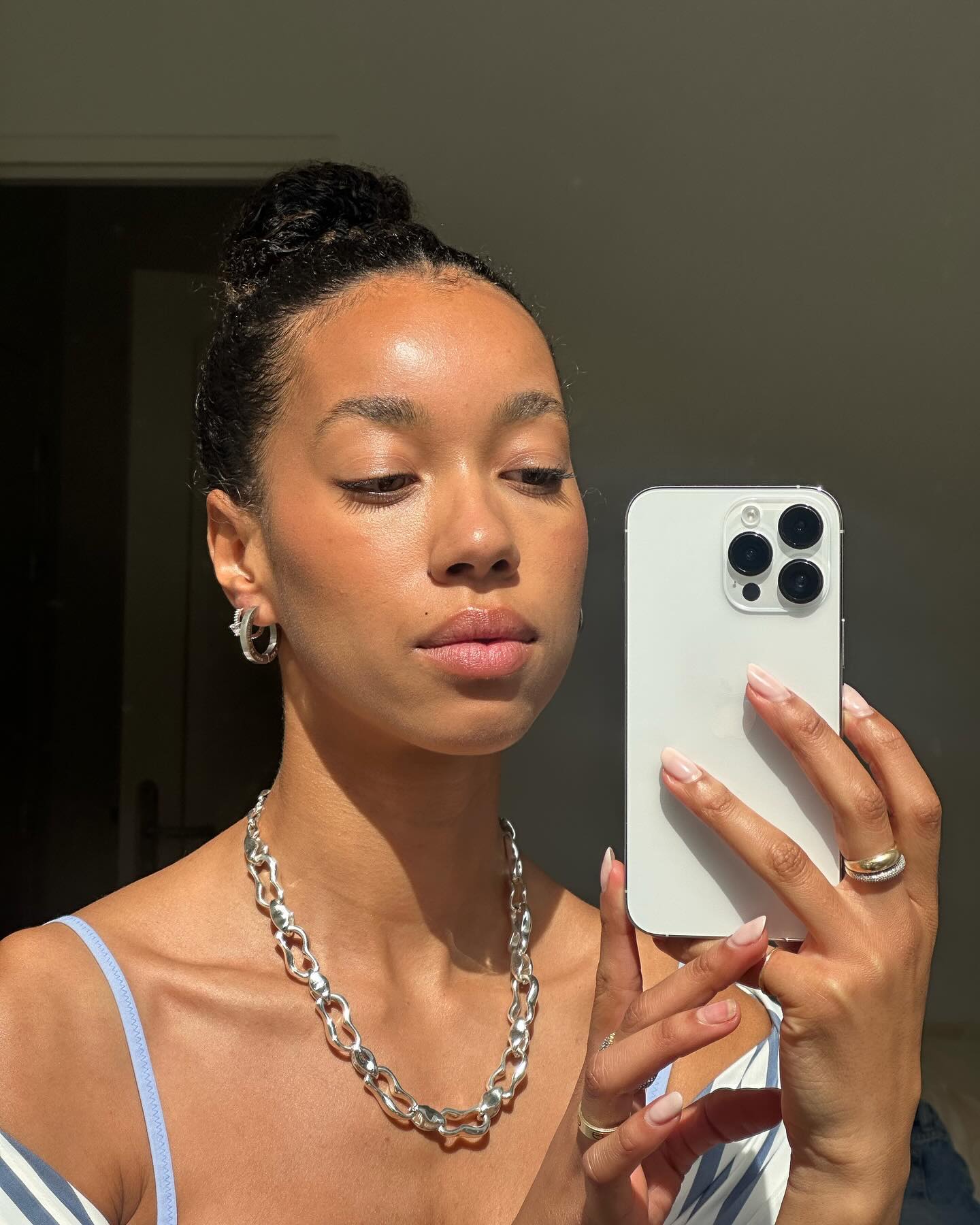
My Top Product Picks
1. Kiehl's Clearly Corrective Dark Spot Correcting Serum
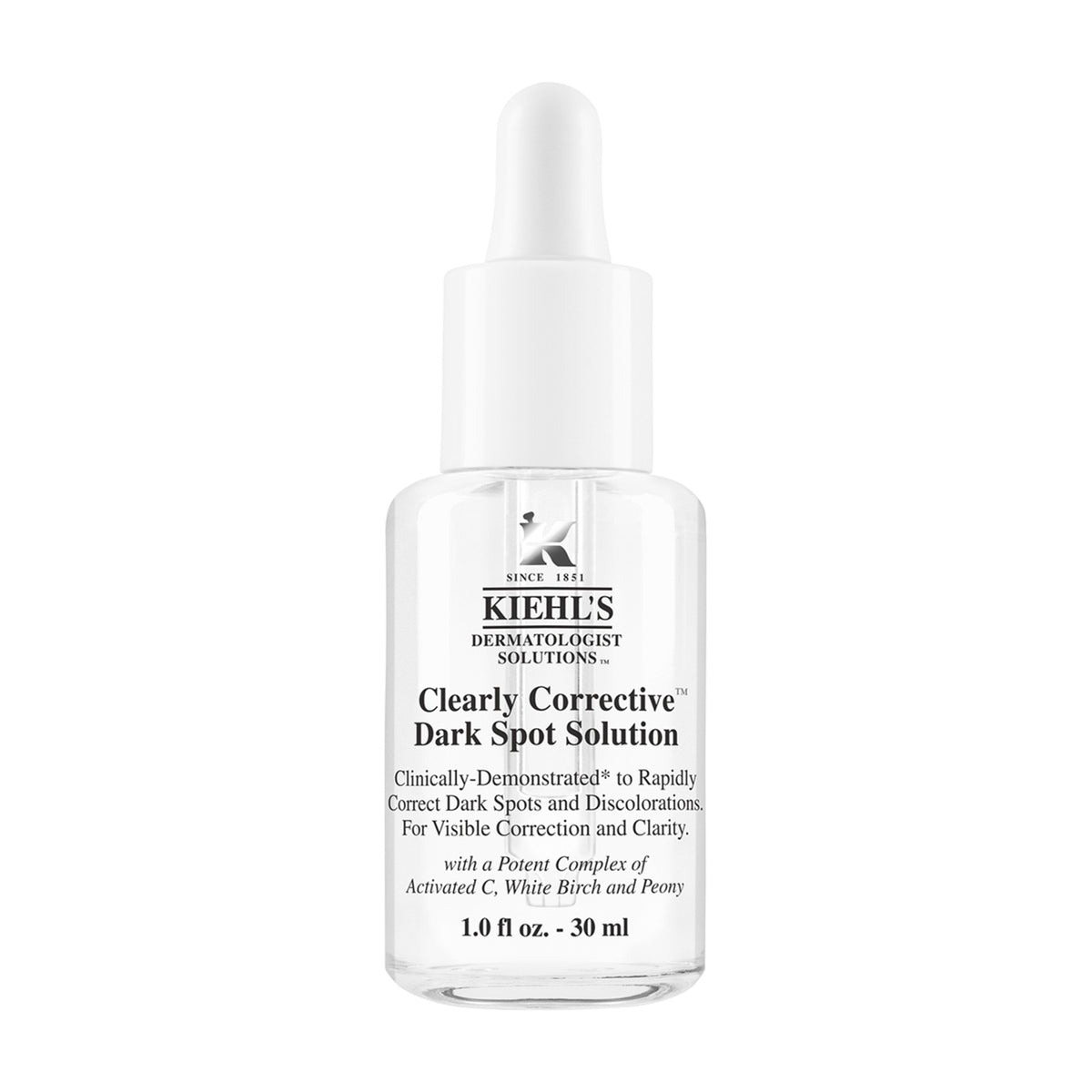
I love using this dark spot brightening serum by Kiehl's because it has a lightweight, non-sticky formula filled to the brim with skin revitalizing ingredients like activated C (a potent form of vitamin C), skin-evening white birch extract, and peony extract to provide protection against oxidative damage.
Pros: uses a lightweight, smooth formula infused with vitamin E
Cons: does not provide fast results
Product Details: 1.0 ounce bottle with dropper
Customer Review: "This serum is really really great! I have some dark spots on my chin from bouts of acne and I noticed improvement starting at about two weeks of using it! This serum is a really nice thin texture and not sticky or heavy for me at all! I have really dry, sensitive skin and didn’t experience any sensitivity."
2. Eadem Milk Marvel Dark Spot Serum
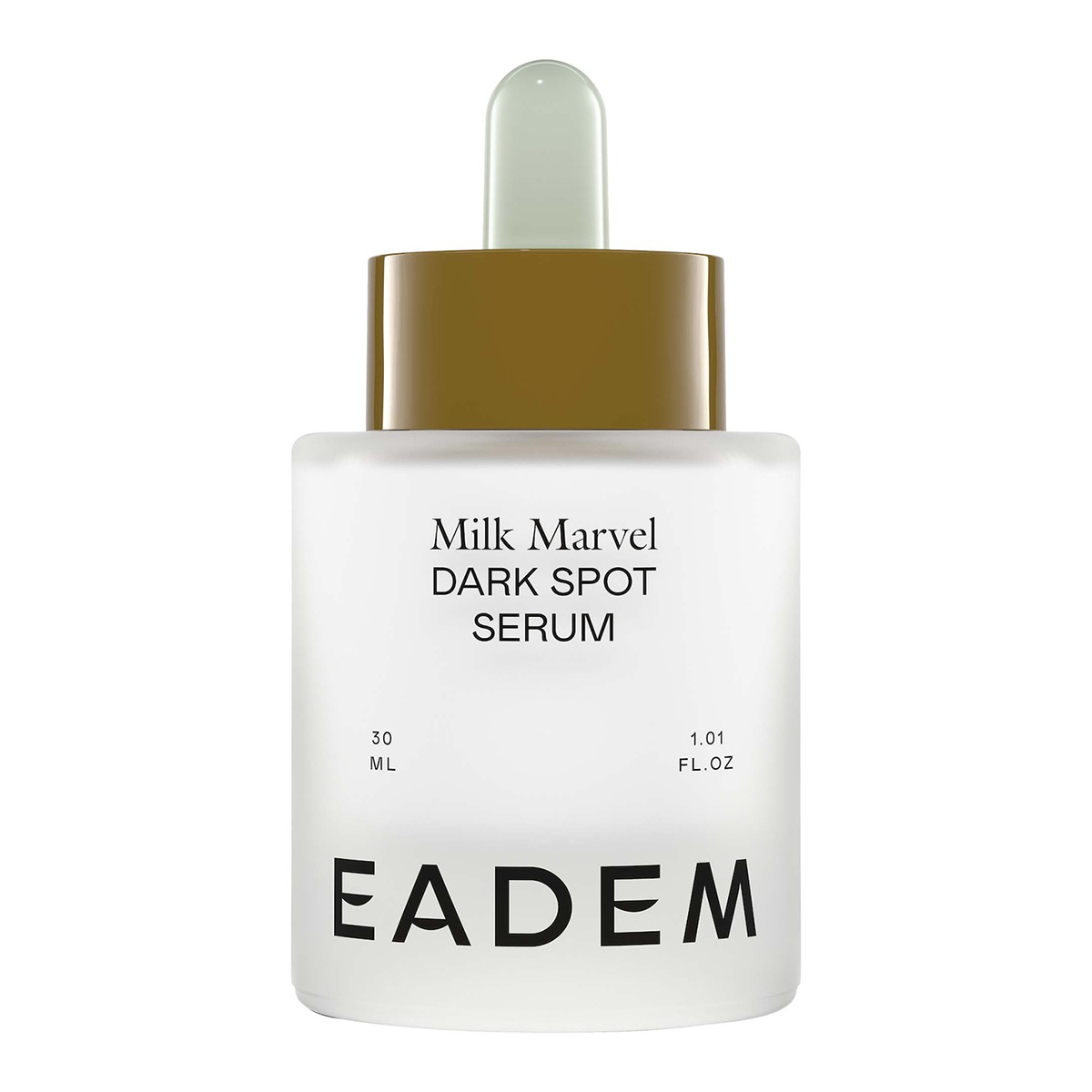
Lately, I've been in my milky skincare era, and I've been really loving how Eadem's Milk Marvel Dark Spot Serum leaves my skin looking brighter and feeling softer. Not only does this serum rapidly reduce hyperpigmentation and visible dark spots, but it also addresses post-acne marks and uneven texture. In the end, you'll be left with an unbeatable healthy glow.
Pros: formula is fragrance-free—ideal for anyone sensitive to fragrances
Cons: does not provide fast results
Product Details: 1.0 ounce bottle with dropper
Customer Review: "I am actually so impressed with this product! I've been using it for about two weeks now, and I've noticed a visible improvement in dark spots on my face. In combination with the moisturizer, my skin has never looked better. I also have been using this for acne scars on my back, and it's working well in lightening those up as well."
3. Topicals Faded Brightening & Clearing Serum
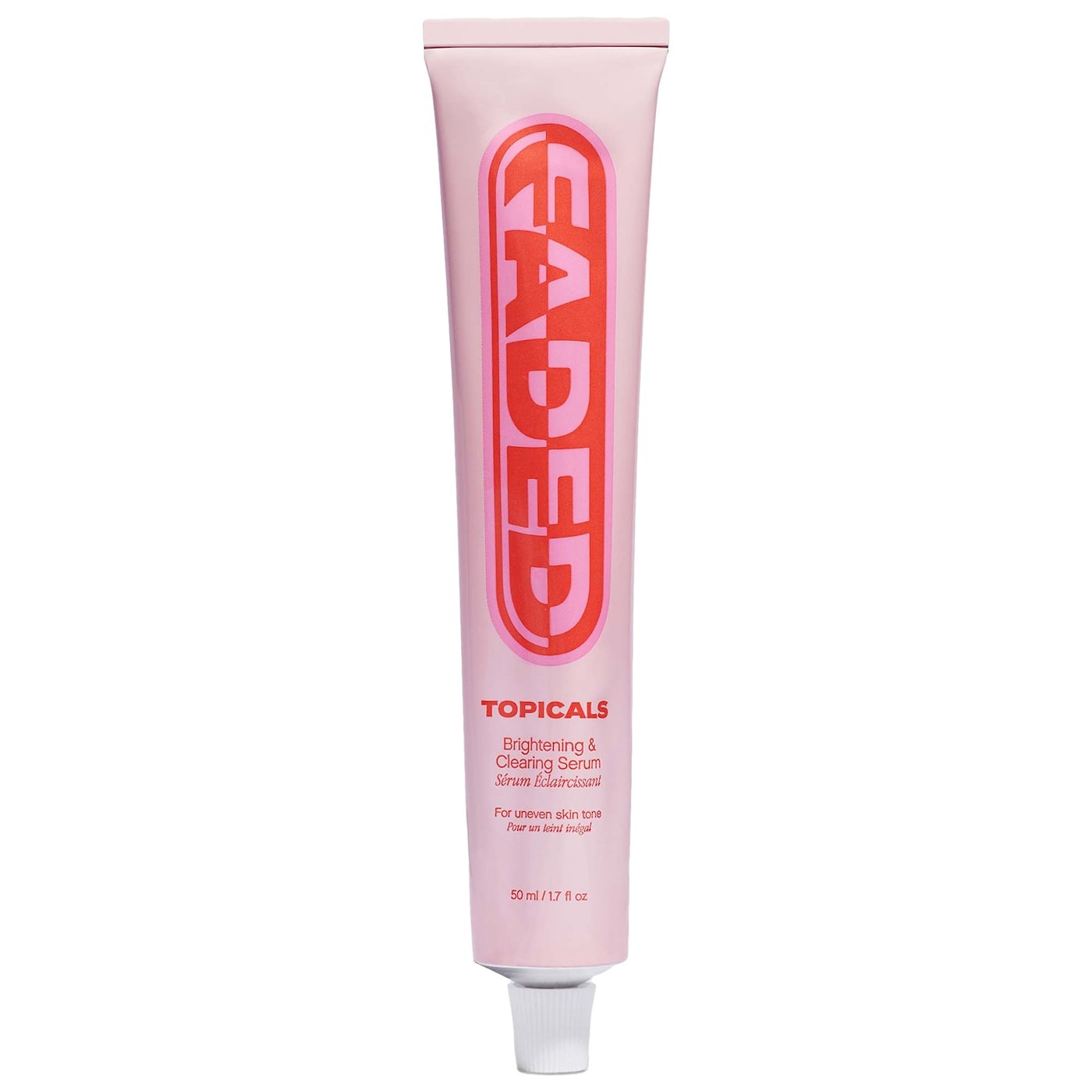
I first attempted to use this one a few years ago but wasn't consistent enough with how frequently I applied the serum. However, I discovered just how much of a difference it can make for my dark spots and areas of hyperpigmentation when I gave it another try last year. Since then, I've noticed how much more even my complexion has looked. I can't imagine giving it up now!
Pros: gentle enough for daily use for all skin tones and ethnicities
Cons: none
Product Details: 1.7 ounce tube
Customer Review: "After using Faded for six weeks my skin was transformed. Hyperpigmentation has dramatically reduced. I absolutely love this product. It did not irritate my skin at all. It gives skin a beautiful dewy glow after application. It’s love for me and it will always be in my skincare routine."
4. SkinMedica Even & Correct Advanced Brightening Treatment
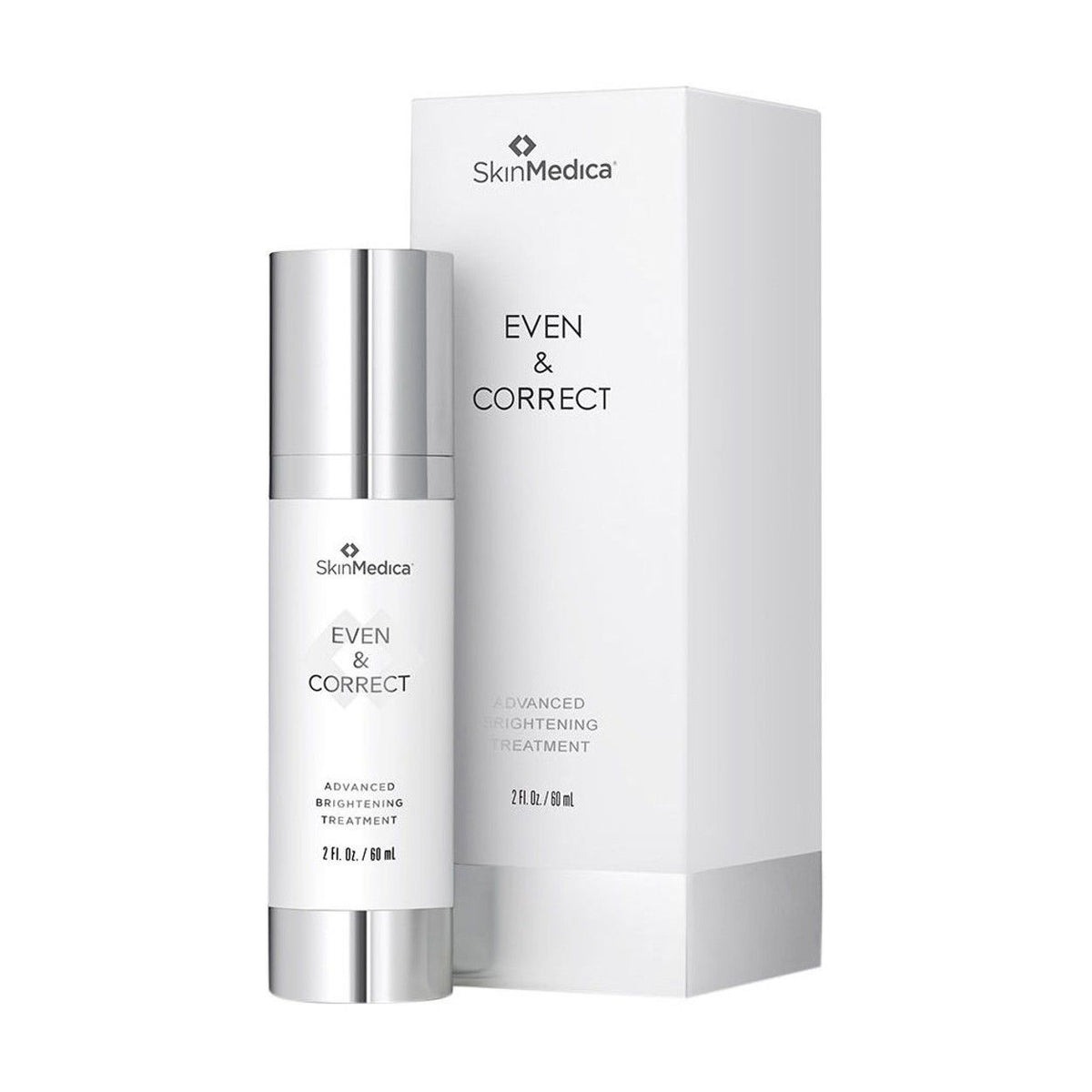
When it comes to daily treatments that can help me get ride of any pesky hyperpigmentation or dark spots in my problem areas, this SkinMedica find is one of the best on the market. Clinically proven to treat melasma and other stubborn hyperpigmentation conditions, the Even & Correct Advanced Brightening Treatment creates visible results in as little as two weeks.
Pros: has a formula that's safe and gentle enough to be used daily
Cons: offered at a high price point
Product Details: 1.0 ounce bottle with a dropper
Customer Review: "This is a very hydrating creamy advanced brightening treatment that I have been leaving. It has light to no scent it just smells like skincare ingredients. The packaging is sleek and has a nice pump so you don’t have to put your fingers in the product. I have noticed more even toned skin and will continue to use it going forward."
5. Sisley-Paris Intensive Dark Spot Corrector
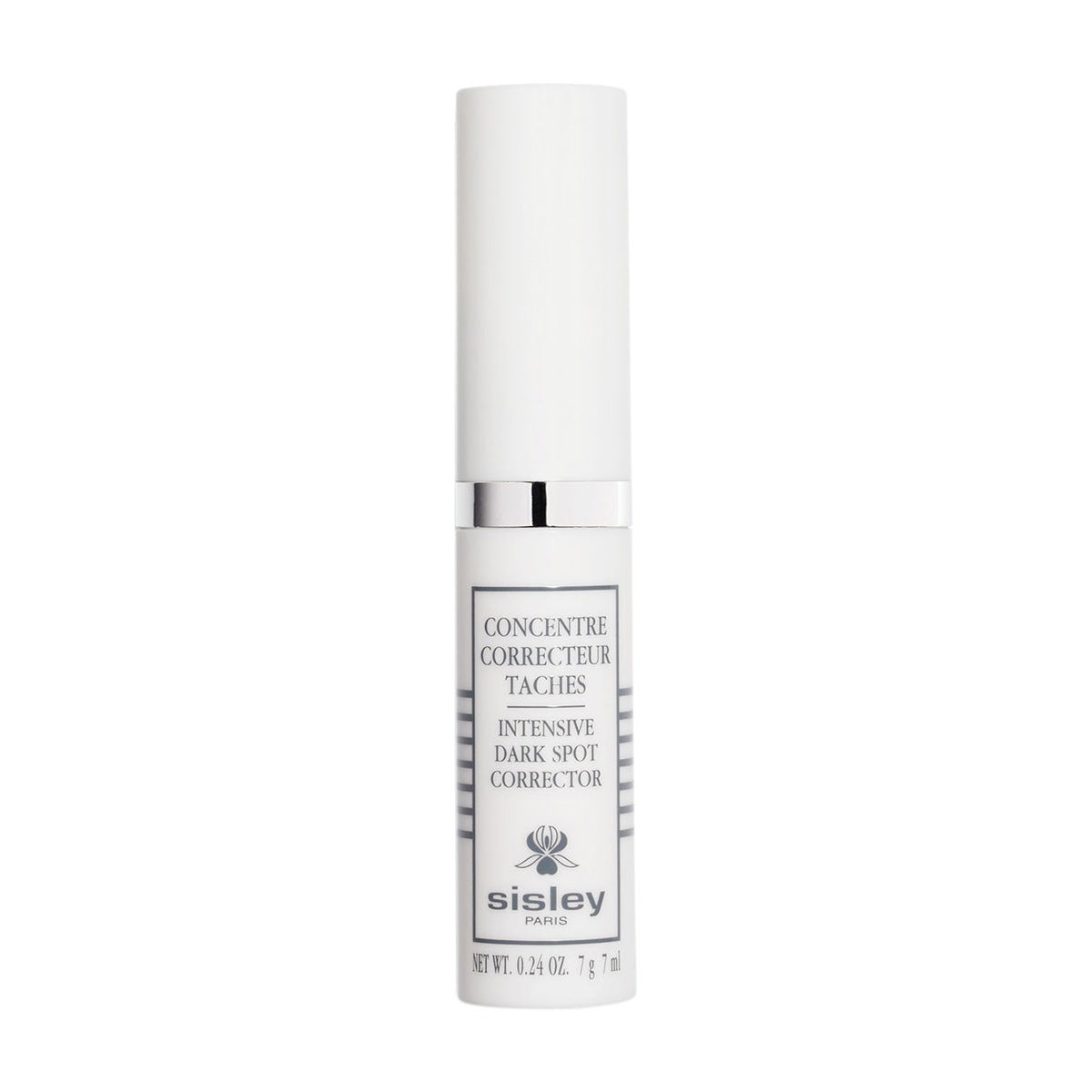
Don't let its high price point scare you away! I've discovered that Sisley-Paris's Intensive Dark Spot Corrector is truly worth the hype. Its formula contains high-performance ingredients to minimize the appearance of dark spots and promote a more even-looking complexion in days. Don't skip out on pairing this with high SPF protection to help prevent more dark spots from forming.
Pros: formulated with antioxidants, vitamin C, salicylic acid, and more
Cons: offered at a high price point
Product Details: 0.24 ounce bottle with roll-on tip
Customer Review: "This product is spectacular! I use it every night before bed and also before I apply my make up. This was the first time using this product and it has excelled my expectations. Highly recommend to others!"

Maya Thomas is an Associate Beauty Editor at Who What Wear. Her strong love for all things beauty, interior design, and fashion stems from a strong childhood interest in the fine arts. During a gap year spent in Paris studying the history of French fashion, she shifted her focus to English literature and journalism as a student at Loyola Marymount University. After graduating in May 2021, Maya began freelancing for Parade.com as a contributing commerce writer. When she's not writing, Maya spends her free time catching up on reading, perusing art galleries, and enjoying a night out at the ballet every now and then.
- Shawna HudsonAssociate Beauty Editor